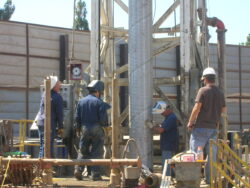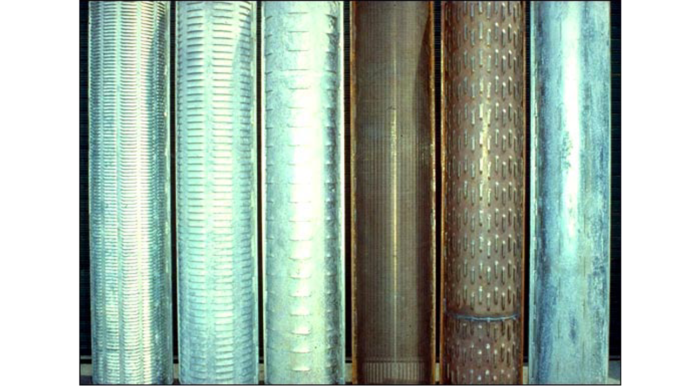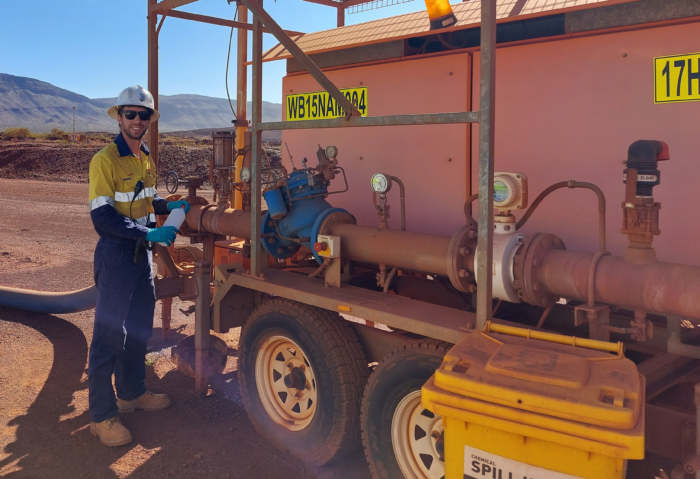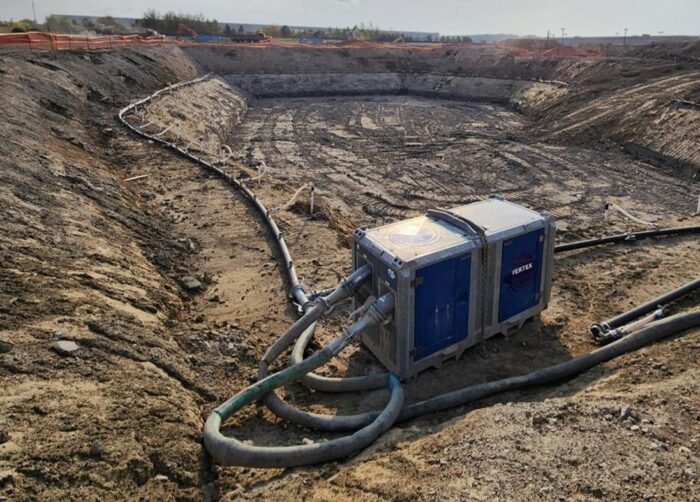Design and operation of dewatering systems, whether for construction or mining, is often complex. While the overall objective is generally common; removal of the required amount of water in an effective, cost efficient, and safe manner, failure to design and operate a system properly can result in failures ranging from inconvenient to catastrophic.
It is important “financial engineers” weigh heavily the technical team’s advice before letting price alone drive purchasing decisions.
Well screen is the heart of every dewatering well, yet its selection is sometimes based on initial cost rather than long-term performance. It is important “financial engineers” weigh heavily the technical team’s advice before letting price alone drive purchasing decisions. The cost of not achieving / maintaining required water levels could result in major construction cost overruns or a mine’s inability to tap valuable deposits. Severe problems, such as sidewall failures, could even cause loss of life. Could any of these outcomes justify relatively minuscule cost saving?

Factors to consider related to well screen selection are fairly straightforward; Is the strength adequate to withstand forces imposed during installation, development, and operation? Is slot geometry conducive to efficient pumping at the lowest possible energy cost? Does the steel from which screen is fabricated have corrosion resistance to match required well life? How does the type of screen selected impact maintenance intervals and cost?
Some well screens are no more than secondary pipe with saw-cut or torch-cut slots. These are neither strong nor efficient, tending to plug rapidly with gravel pack or formation material and corrode quickly when used with water quality less than potable. On the other end of the spectrum are over-designed screens with a cost not justified by the intended use. Finding the optimum “sweet spot” isn’t rocket science but unfortunately the importance of selecting the proper screen is often overlooked.
There are but a handful of companies worldwide who’s core business is dedicated to well screens. Representatives of these manufactures are generally knowledgeable and eager to speak with consultants engaged in the design of dewatering wells. In my opinion, it is worth taking time to discuss with these technically competent people the pros and cons of various types of screen and materials from which they are produced.
A few companies, including Roscoe Moss Company, manufacture not only well screen but also the pipe from which screens are fabricated. These suppliers can add value to projects by providing casing and screen built to specific diameters and lengths along with providing compatible end fittings to facilitate efficient field installation. For example, spline-lock fittings are available for use where safety issues preclude the use of welded connections. In other situations, where welding can be employed, weld collar connections are a time saving alternative to butt welded joints. These options are available from such specialized suppliers.
Proper investigation of available alternatives and purchasing decisions based on performance rather than initial cost should be the norm rather than the exception.
While well screen selection may not be considered the “sexy” part of dewatering well design it is imperative it is not taken lightly. Proper investigation of available alternatives and purchasing decisions based on performance rather than initial cost should be the norm rather than the exception.









